
12 minute read
COLLEGE KNOWLEDGE
Area CEOs talk about their college experiences and the career advice they give students
Dave Goodin President and CEO
MDU Resources Group Bismarck, N.D.
YOU WENT TO NORTH DAKOTA STATE UNIVERSITY, IS THAT RIGHT?
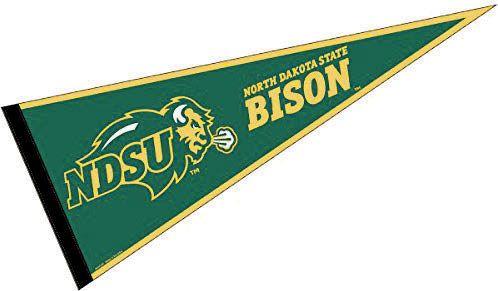
Yes. I got my undergrad at NDSU.
HOW DID YOU WIND UP THERE, AND HOW DID YOU CHOOSE ELECTRICAL ENGINEERING AS A MAJOR?
Really, a high-school guidance counselor pointed me in that direction. I still remember; Jim Bjorklund was his name. I’d been thinking, well, maybe I’ll be an electrician; in fact, I probably would have been a finish carpenter. I liked working with wood.
But he said, you know, given your grades and scores, why don’t you give college a try? If it doesn’t work out, you can always fall back on a two-year associate degree or something.
I thought, Yeah, well, I’ll give it a shot. And who knows?
It stuck, I guess.
YOU USED YOUR MAJOR AFTER GRADUATION?
So I started as a field engineer for Montana Dakota Utilities out in Dickinson, N.D. I worked my way up to supervising, then moved to Bismarck and ultimately worked on our electric system control center, which is where we coordinate with all of our power plants.
And then about 15 years after getting my engineering degree, I thought I should go for the MBA and complement my technical background.
That really added to my financial skills.
And I’ll add one more chapter, which is that at about the 25year mark in my career, I got the chance to attend the two-month Harvard Advanced Management Program. It’s a very international event – about 150 people, about a third of whom are U.S.-based and two-thirds are international students.
The reason I even bring that up is your question about “Lessons learned.”
First, people sometimes ask me, what did you learn in engineering school? My answer always is, it’s a method of problem solving, and not necessarily by getting out a calculator.
As my career advanced, it involved working with people – people of different backgrounds, different stakeholders and constituents, finding a way to solve multi-dimensional problems.
And at Harvard, one of my takeaways from there was, “You’ve got to make sure you have the right people on the bus.” The right folks in the right roles – that’s how effective an organization can be when it’s done correctly, or how ineffective if it’s not done very well.
WHAT ARE YOUR THOUGHTS ABOUT THE LIBERAL ARTS?
I learned technical skills as an engineer, and financial skills with my MBA. But I also took history, English and writing; and for me, those skills in speaking and presentation and ideas are some of the most important today.
At MDU, we always look for folks who are just very well-rounded. And of course, if you’re a team player and you provide value, other teams see that, too. And your ability to get things done is highly important in our business.
Brad Wehe
COO and CEO-designate
Altru Health System Grand Forks, N.D.
YOU WERE TRAINED INITIALLY AS A PHYSICAL THERAPIST. HOW DID THAT COME ABOUT?
People’s pathways are all different. During my undergraduate years, I switched from accounting to pre-law to pre-medicine. I finally figured out that science was my interest. So I got my B.S. in biology from Mayville State University, and then applied to physical therapy school.
I got accepted at the Mayo Clinic’s program and proceeded down that route.
HOW DID YOU WIND UP IN ADMINISTRATION?
What I’ve realized is that as I progressed, I had a broader and broader view of helping people and influencing change. In other words, when you’re working with a patient, it’s one on one. When you’re a supervisor, you’re supervising a team of people, which I found very rewarding.
So it’s bigger change, and it becomes more so as you work your way through levels of leadership.
But I’m still seeing patients; I’ve always kept that piece of my career. Typically a few times a month, I’ll be in the clinic for a few hours, treating patients. It keeps me grounded.
WHAT LESSONS HAVE STAYED WITH YOU FROM PHYSICAL THERAPY SCHOOL?
It was the last day of class at the Mayo Clinic. Our program director was speaking to us, and of course we all felt pretty good about ourselves, now that we were graduating.
And he told us very specifically, “You need to understand that the knowledge you have right now is just the tip of the iceberg.
“There is so much more to learn. And it is outside of the textbooks.”
He was talking about our interaction with patients, with families, with communities. So he really encouraged us to be open and to keep learning. I’ve always remembered that; I completed my MBA a year ago with that in mind.
When I look back, I see that my core knowledge of physical therapy was vital. But I also think of the things I’ve learned outside of textbooks, and I remember the program director saying just that. It has served me well.
WHERE DID YOU GO TO COLLEGE?
University of North Dakota
WHAT DID YOU MAJOR IN?
My undergraduate degree was in business, and I have a graduate MBA with emphasis in finance.
HOW HAS YOUR MAJOR INFLUENCED YOUR CAREER?
Simply put, my education was the foundation for my professional development and incredibly instrumental in the opportunities and achievements that I have experienced in my career.
WHAT ARE SOME OF THE MOST USEFUL LESSONS YOU LEARNED IN COLLEGE?
The most important lesson I learned in college was the role of continuing education and being a lifelong learner. I also learned the importance of discussing ideas and developing my own philosophies while respecting the views and opinions of others – and just being exposed to the different views and backgrounds of so many different people was so beneficial to me.
I value my upbringing, having grown up a small town in North Dakota. But being exposed to learning, new opportunities and different views and backgrounds of so many different people was essential to my personal and professional development.
WHAT ARE YOUR THOUGHTS ABOUT THE LIBERAL ARTS?
No surprise, my interest and strongest subject in college was mathematics, which is why I pursued a career in banking and finance.
That being said, as I’ve gotten older, I’ve wished that I would have had more appreciation for liberal arts and the development of my “life other than numbers.” At the time, I was focused on getting a job, rather than understanding that life is long, interesting and challenging in so many different ways.
Today, I find myself more interested in learning about life through the eyes of others.
ARIZONA STATE, EH?
Yes. Arizona State in Tempe. I went there in 1982, graduated in 1986. My father bought Warner & Co. in 1974. I’d worked at the company when I was in high school, so I had an idea that I wanted to go into the insurance industry. But I also wanted to go away to school.
I had several friends who were going to ASU at the time, and when I found out that the university had an insurance major, it was just a logical choice.
I GATHER THAT WHILE YOU BENEFITED FROM THE CLASSES, YOUR MOST VIVID MEMORIES ARE OF THE PEOPLE.
Absolutely. That was my real takeaway from college. I was around people from all over the United States who had different backgrounds, and the chance to get to know them was fantastic.
WHERE DID YOU GO TO COLLEGE?
University of North Dakota (Harvard of the North)
WHAT DID YOU MAJOR IN?
Business Administration
HOW HAS YOUR MAJOR INFLUENCED YOUR CAREER?
My degree definitely narrowed the focus of my initial job search, which ultimately led me to a career in business, specifically health insurance.
WHAT ARE SOME OF THE MOST USEFUL LESSONS YOU LEARNED IN COLLEGE?
Some of the biggest lessons were learned in group projects and assignments. We usually studied a business case as a team, reached a conclusion and then divided the work of writing the paper and presenting the results to the class.
Even here in North Dakota, there are a lot of ASU graduates, from policy directors to industrial builders. Kurt Kollman, president of Construction Supply in Fargo, he and I were friends and went to school together at Arizona State. Jon Wanzek of Wanzek Construction, he’s a friend of mine from grade school, he attended Arizona State.
(Former North Dakota Board of Higher Education member) Grant Shaft and I went to college together. We were both on the Greek steering committee, so I know Grant from college.
The current governor of Arizona and I were friends. He was in the Greek system, and he ended up becoming the CEO of Cold Stone Creamery before he became governor.
Sean Minor, now of Sean Minor Wines in California; he was a fraternity brother. Andy Spade; he was one of my best friends my freshman year. He went to ASU and was a marketing major, he met Kate when they were selling clothes to get through school. They went to New York and were phenomenally successful.
The actor David Spade, Andy’s brother; he was a fraternity brother, too. He was a year younger than I was.
The point is not that all of these people are celebrities. The point is, that’s college. It’s a chance to get to know all kinds of people, and the way to do that is to get involved.
That’s my advice to students: First, graduate with the least amount of debt that you can. Second, if it’s possible to go away to school, do so. If not, then absolutely take advantage of a great education right in your town – but don’t live at home. Repeat: Do. Not. Live. At. Home.
And finally, get involved – with sports, with clubs, with a fraternity or sorority. That’s where you’ll build your leadership and relationship skills, and those are the skills you’ll be using for the rest of your life.
We learned valuable teamwork skills from these projects, including how to make the most of each team member’s strengths (in writing, presenting and so on).
We also learned that our grade was a team grade. I remember being given one of our team’s final papers at 11 p.m. to be delivered to our professor the next day at 9 a.m. because the team member said she could not attend class that day. When I opened the folder, I saw that the report was full of typos, errors, pages upside down and so on. I worked most of the night re-doing the paper.
The lessons learned – both positive and negative – from those projects have been very applicable and beneficial in my career, as almost all of our work requires team efforts.
Being responsible and accountable is vital, and leveraging employee strengths is part of our everyday life.
WHAT ARE YOUR THOUGHTS ABOUT THE LIBERAL ARTS?
Even though I pursued a business degree at UND, I took a significant number of liberal arts classes. Literature, fine arts, humanities, history and film classes were very interesting to me, and they helped me become a more well-rounded individual in important areas outside of my business studies.
At BCBSND, we have people with liberal arts degrees throughout our organization, and they’re working in many areas ranging from corporate communications to important executive functions. We value diversity in our work force, and that includes diversity in education. Good people from all educational backgrounds add value to an organization.

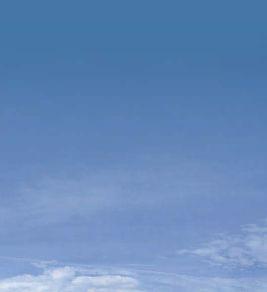

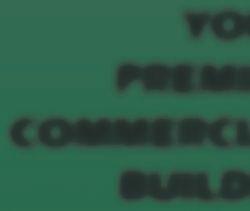

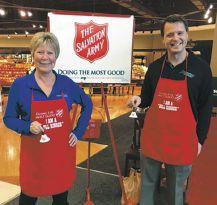
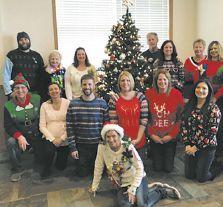
Steve Stenehjem CEO and Chairman
TELL US ABOUT YOUR BACKGROUND.
I grew up in Watford City, went to Watford City High and then the University of North Dakota, where I was a banking and finance major.
HOW DID THAT COME ABOUT?
My family were bankers. So when I went to college, I really didn’t know what I wanted to do with my life, but I figured majoring in banking and finance couldn’t hurt, given my family’s background.
WHAT DO YOU REMEMBER FROM YOUR CLASSES?
One of the first classes I took was Accounting 101. And I hadn’t had any bookkeeping or accounting in high school, so it was very difficult for me. I had to read every chapter three or four times and figure out debits and credits and all of that sort of thing.
But once I got it, I took basically as much accounting as I could stand. I almost was an accounting major.
And, I think that of all of the classes that I took, accounting classes and business law probably were the best, in terms of my future business career.
Speech classes were very good, too. Getting confidence in speaking in front of people is a very good thing. It’s a skill that goes a long way in life, because invariably, you’re going to have to speak in front of people when you’re in business, whether your audience is employees or customers or a civic group.
IS THAT WHAT YOU TELL STUDENTS TODAY?
Absolutely. I love to talk to kids who are going off to college, and the advice I give them is what I just said:
First, take as much accounting as you can stand. Even if you’re going to be a lawyer or doctor or dentist, having some business and accounting background is a very good idea.
Second, take speech and English classes, because being a good communicator is a good idea as well.
And one other thing: Try not to look like a college freshman! Dress nicely when you go to class; don’t wear sweats and an old T-shirt. Look a little more professional.
You’ll have a professor who looks professional, and the students who show up and look like they mean business, I think, do better.
After all, when you to to a job interview, you’ll want to look like the job you want. Dress for the part, in other words. That habit begins early, and college is a great time to start.
WHERE DID YOU GO TO COLLEGE?
University of Iowa (the only school in Iowa )
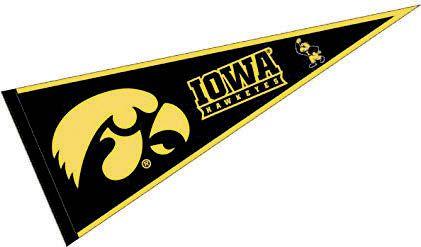
WHAT DID YOU MAJOR IN?
Accounting and finance
HOW HAS YOUR MAJOR INFLUENCED YOUR CAREER?
Accounting and Finance, together, can be a powerful combination. Accounting helps one understand how to put together financial statements, while finance helps one understand how to read those statements and interpret what they’re telling you.
Understanding both of these disciplines gave me a real head start in the banking business.
WHAT ARE SOME OF THE MOST USEFUL LESSONS YOU LEARNED IN COLLEGE?
As described above, while the understanding of these two disciplines have been very helpful to me, two of the more important lessons learned in college were: n Critical thinking skills, which include an appreciation of the need for a variety of perspectives n An appreciation for learning and a willingness to always learn new things
WHAT ARE YOUR THOUGHTS ABOUT THE LIBERAL ARTS?
If I was talking with a student who was majoring in a liberal-arts field, I would say, “Pursue your passion!”
Life is too short not to do so. Specific skills and/or industry knowledge can be learned at any time.
If you set the bar at competence, how do you reach excellence?
Seth Arndorfer CEO Dakota Carrier Network Bismarck, N.D.
WHERE DID YOU GO TO COLLEGE?
I earned my first two degrees from Dickinson State University in Dickinson, N.D., where I competed as a team roper on the rodeo team.
Initially, my career plans were to work on our family farm in Hettinger, N.D., so I got an associate degree in agriculture. Then I decided to pursue a bachelor’s degree in business, and that’s when I realized the farm may not be the best fit for me.
I later earned my executive MBA from the University of Mary in Bismarck while working at DCN.
HOW HAS YOUR MAJOR INFLUENCED YOUR CAREER?
Tremendously. Though it didn’t teach me everything I needed to do my job, it taught me how to work through the process of learning new concepts. The tech industry is constantly changing, and I’m fortunate to get to apply the skills I learned in college every day in my career.
WHAT ARE SOME OF THE MOST USEFUL LESSONS YOU LEARNED IN COLLEGE?
One of the most valuable lessons I learned was patience. Four years doesn’t seem like a long time at this point in my life, but when I was 18, I remember thinking, “There is no way I’ll have the stick-toitiveness to see this through.”
Another valuable lesson was learning how to work with people who have personalities very different from my own. The ability to be an effective team player has been useful throughout my career.
WHAT ARE YOUR THOUGHTS ABOUT THE LIBERAL ARTS?
The industry I work in is highly technical, so we’re a bit light on liberal arts majors. But I will say DCN has become a stronger organization as we’ve hired more people with liberal arts backgrounds. Their approach to finding solutions and communicating brings an additional perspective to our organizational discussions, helping us become more well-rounded.
Personally, I always urge kids to pursue their passion and not get too wrapped up in what their major is, because more than likely, life and/or God will change the course they’re on anyway.
I think the important part of college is seeing it through to the end and earning a degree regardless of its type, field or concentration.










